CAG The Zealand Inflammation Research Initiative (ZIRI)
The Zealand Inflammation Research Initiative (ZIRI). Chronic Inflammation, Vascular Diseases, and Cancer. Mutations in Blood Cells – a Common Link? ZIRI strives to increase the quality of life and survival rates of patients with chronic MPN blood cancers through early-stage diagnostics and improved treatment for MPN and comorbidities.
MPN (Philadelphia-negative myeloproliferative neoplasms) is a group of chronic blood cancers – essential thrombocytosis, polycythemia vera and primary myelofibrosis. MPN often succeeds a long pre-diagnostic phase of up to 5-10 (or even 20) years of repeated disabling or life-threatening blood clots in e.g. the brain, heart or lungs. Many MPN patients also suffer from comorbidities, including brain disease (dementia), cardiovascular disease, lung disease, osteoporosis with increased risk of bone fractures, chronic kidney disease and increased risk of other types of cancer. The comorbidities contribute to a significantly reduced quality of life and ability to work.
With a view to ensuring that more patients are cured or experience a minimum of complications, the ZIRI CAG seeks to increase knowledge of the emergence of blood cancers and to strengthen the link between basic and clinical research (translational research). Among other things, ZIRI will focus attention on the heavy disease burden of MPN patients and the increased risk of blood clots and comorbidities.
MPNs are typically grouped among the rare diseases. However, a Danish study that screened 20,000 citizens for MPN genetic errors (mutations) has shown that 3.2 per cent have a mutation that is either a precursor to an MPN blood cancer or an undiagnosed blood cancer. In Denmark, approx. 10,000 citizens live with an undiagnosed MPN blood cancer and constantly increased risk of blood clots in the e.g. the brain, heart or lungs. Patients with MPN blood cancer also have increased risk getting other types of cancer . Therefore, MPN blood cancers should be diagnosed at a much earlier stage than is the case today.
The shared initiatives and goals of the ZIRI CAG concerning early-stage diagnostics and treatment of MPN and comorbidities should lower the significant expenses associated with treating MPN diseases and associated complications at a later stage.
Training and Competency Development
The ZIRI CAG seeks to increase training of the clinical departments and general practices who are the first to see patients with increased blood cell counts. It also aims to strengthen knowledge of MPN in university environments and among patients with MPN, among other things through teaching in the MPN Patients’ Association.
Contact us
If your inquiry concerns your symptoms, medical history and treatment, please contact your private doctor.
CAG Chairs
-
Hans Carl Hasselbalch Professor, dr. med., Department of Hematology, Zealand University Hospital, Region Zealand
-
Bulat Ibragimov Associate professor, Datalogisk Institut, Image Analysis, Computational Modelling and Geometry
CAG Junior Chairs
-
Morten Orebo Holmström Post Doc, Department of Cancer Immune Therapy (CCIT), Department of Oncology, Copenhagen University Hospital , Herlev, Denmark.
-
John Rizk Post Doc, Molecular Immunology and Inflammation, LEO Foundation Skin Immunology Research Center, Department of Immunology and Microbiology, University og Copenhagen
CAG Key Members
-
-
Karina Meden Sørensen Head of Coordinating Center, PhD, The National Biobank, Biobank and Biomarkers, Statens Serum Institut
-
Johnny T. Ottesen Professor, PhD, M.Sc., Mathematical Health and Disease Modeling, Roskilde University Center
-
Shohreh Issazadeh-Navikas Professor, Neuroinflammation Unit, BRIC, Faculty of Health and Medical Sciences University of Copenhagen
-
Christina Ellervik Associate professor, dr. med., M.Sci, Department of Data and development support, Nykøbing Falster Sygehus, Region Zealand
-
Niels Eske Bruun Professor, dr. med., Department of Cardiology, Zealand University Hospital, Roskilde, Zealand Region
-
Troels Wienecke Associate professor, PhD, Department of Neurology, Zealand University Hospital, Roskilde, Region Zealand
-
Torben Lykke Sørensen Professor, chief physician, Department of Ophthalmology, Zealand University Hospital Roskilde, Region Zealand
-
Claus Henrik Nielsen Professor, Senior Consultant, Institute for Inflammation Research (IIR), Rigshospitalet, the Capital Region of Denmark
-
Mogens Holst Nissen Professor, University of Copenhagen, Faculty of Health and Medical sciences, Department of Immunology and Microbiology








